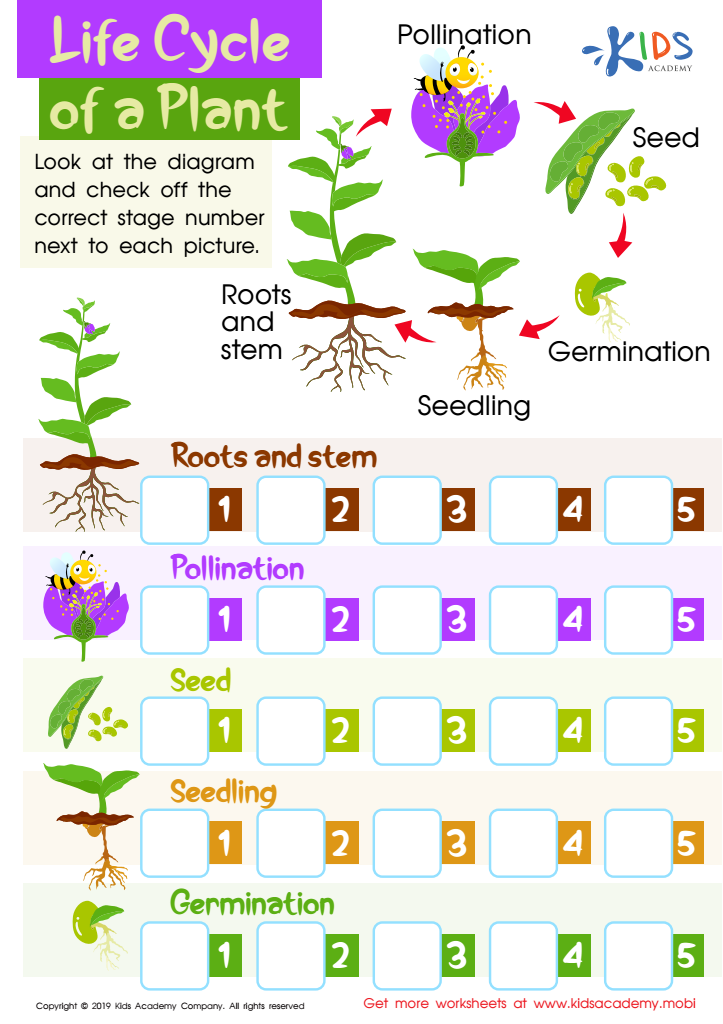Plant growth stages Worksheets for Kids
1 filtered results
-
From - To


Life Cycle of a Plant Worksheet
Question/Answer
How to test a Grade 3 student’s Plant growth stages skills?
To test a Grade 3 student's understanding of plant growth stages, create a short quiz with multiple-choice and true-or-false questions covering the key stages (seed, germination, growth, reproduction, pollination, and seed spreading). Alternatively, use matching or sequencing activities where students order the stages of plant growth correctly or match descriptions to the appropriate stage.
Why is the Plant growth stages skill important for Grade 3 students?
The Plant growth stages skill is important for Grade 3 students because it introduces them to fundamental biological concepts, helps them understand the lifecycle of plants, and emphasizes the importance of plants in our ecosystem. Additionally, it fosters observational skills, critical thinking, and an appreciation for nature, laying the groundwork for more complex scientific learning in future grades.
What are some effective activities to train students’ Plant growth stages skill when teaching them about Plants and Animals?
Effective activities include creating growth stage timelines, planting seeds and observing their growth, dissecting plants to identify parts and stages, using flashcards for memorization, interactive digital simulations on plant growth, and engaging in group discussions or presentations on observations. These hands-on and interactive methods help students understand and remember the different stages of plant growth.

 Assign to the classroom
Assign to the classroom












